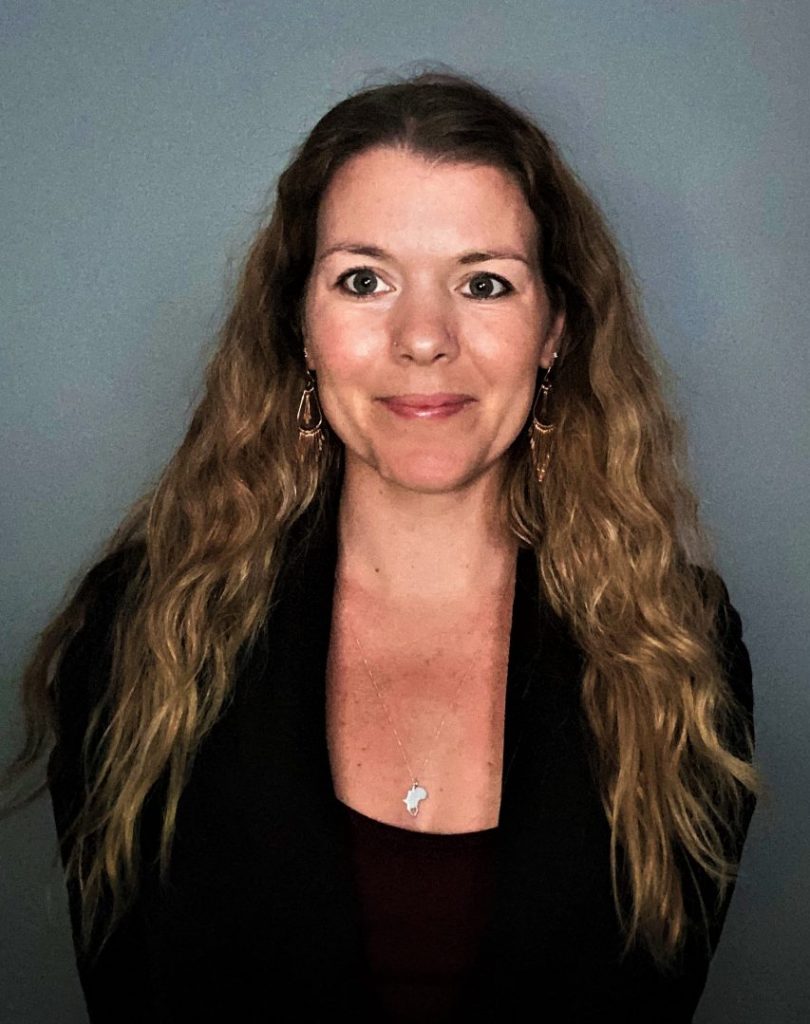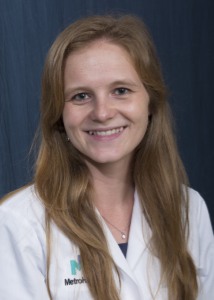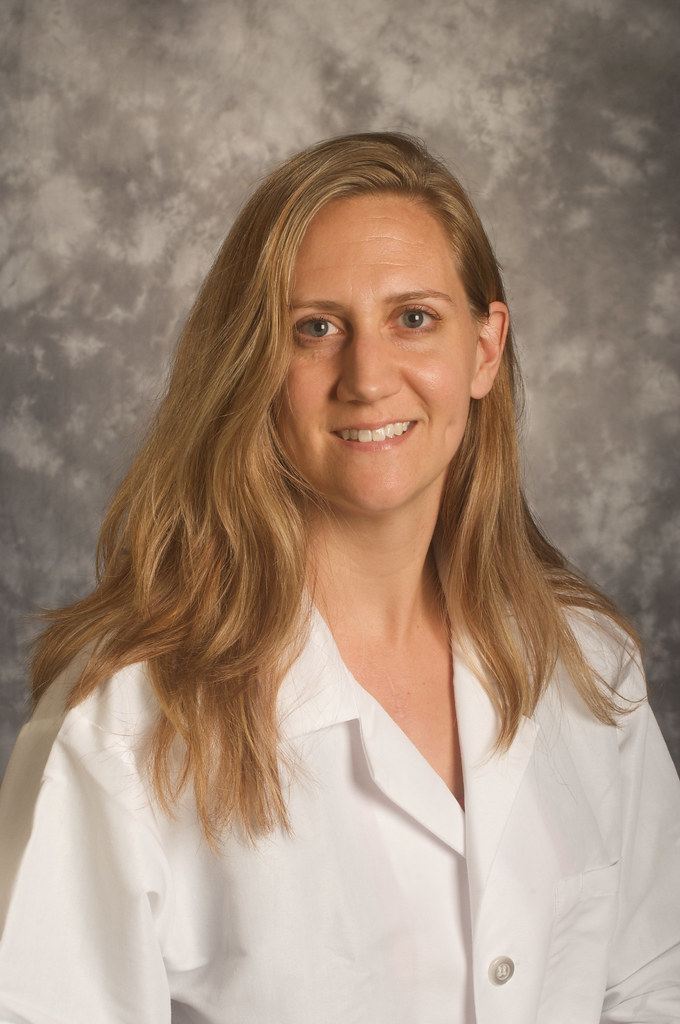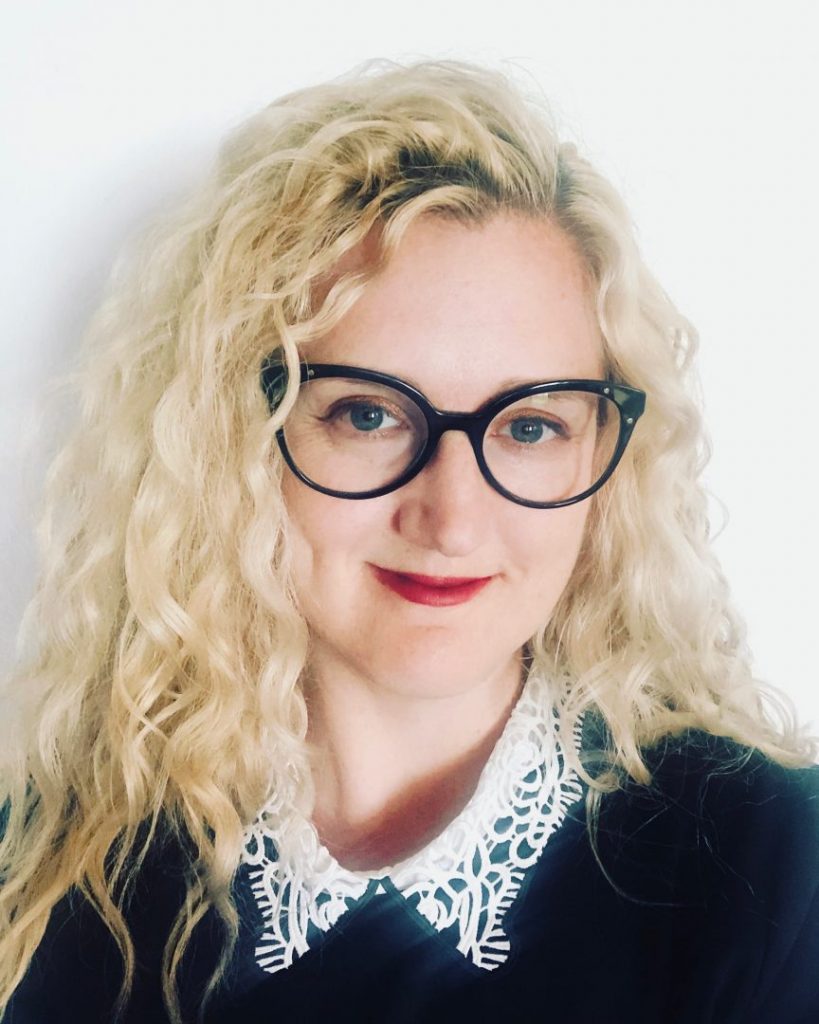Dr. Elizabeth Benninger, PhD

Dr. Elizabeth Benninger, PhD, is a post-doctoral fellow at Case Western Reserve University and an adjunct Psychology instructor at Cleveland State University, where she teaches courses related to Health, Social, and Community Psychology. She obtained her MA in Psychology (Applied Community Psychology) from Antioch University, Los Angeles and a her BA in Community Development and PhD in Psychology from the University of the Western Cape in Cape Town, South Africa. Her research focuses on local, national, and international collaborations which specifically aim to promote the health and well-being of children and families within communities experiencing high levels of poverty and health inequity.
Project Title: Youth Lens: Conceptualizations of the Neighborhood Environment & its impact on Health & Wellbeing
Summary:
As a member of the Community Based Research Network, she is the principal investigator on the study Youth Lens: Conceptualizations of the Neighborhood Environment & its impact on Health & Wellbeing. The study takes a participatory action research approach with children and youth in Cleveland with three overarching aims; (1) Explore the perceptions of children and youth related to how experiences of poverty, stress and adversity within their neighborhood environment shapes their health, (2) Understand how social, built, and structural resources buffer the potential negative impact of adversity and promote health and well-being, (3) Investigate and prioritize child-centered strategies for creating neighborhood environments which will promote their health and well-being. Given the significant social, economic, and health inequities that continue to marginalize children, the complex and multifaceted nature of childhood and the fundamental knowledge deficit regarding children’s perspectives on their health and environment, the proposed study has the potential to generate important knowledge in the context of childhood studies, public & environmental health, professional practices and the formulation of policies that promote the health of children.
COVID-19 Planning:
She has received IRB approval to conduct data collection through Zoom focus groups and phone interviews with the current participants in the study. She will continue to use this format during the stay-at-home orders, and resume the in person format once the orders have been lifted and if it is safe for the participants.
When COVID Hit, The World Stopped from YOUR STORY ON FILM on Vimeo.
Discussion Guide:
Milana Bogorodskaya, MD

Milana Bogorodskaya, MD is an Assistant Professor at the School of Medicine at Case Western Reserve University and an Infectious Diseases physician at MetroHealth, specializing in HIV care and antimicrobial stewardship. She received her Bachelors in Science from University of Florida and her Medical Degree at Northwestern University. She went on to complete her Internal Medicine residency at University Hospitals at Case Western Reserve University and Infectious Diseases fellowship at Beth Israel Deaconess Medical Center at Harvard University in Boston, Massachusetts. Dr. Bogorodskaya’s research interests span to include HIV prevention among minorities as well cardiovascular disease risk stratification and prevention in people living with HIV. Her prior research work in HIV prevention demonstrated a significant racial disparity in PrEP awareness among men who have sex with men in Cleveland, OH and low PrEP awareness overall among heterosexual women at high risk of HIV acquisition. She has also published several studies assessing the effect of metabolic markers on cardiovascular disease in people living with HIV. She was awarded the Conference on Retroviruses and Opportunistic Infections (CROI) 2020 New Investigator Scholarship for her work on the association of visceral and subcutaneous fat tissue with cardiac plaque burden among people living with HIV. Since joining the MetroHeath Division of Infectious Diseases as faculty, she has collaborated with University Settlement in Broadway-Slavic Village neighborhood to explore the challenges of PrEP delivery and develop innovative initiatives to improve PrEP awareness and uptake among those at highest risk. In her spare time, she is a contributing author to Infectious Diseases Society of America Journal Club and founder of FOAMid (www.FOAMid.com), a blog dedicated to providing infectious disease knowledge to clinicians outside of the infectious diseases specialty.
Project Title: Increasing PrEP uptake in Slavic Village
Community Partner Organization:
Summary:
Dr. Bogorodskaya is partnering with University Settlement in Broadway-Slavic Village neighborhood to assess the barriers to PrEP uptake and adherence in Cleveland, OH, with an emphasis on identifying challenges that contribute to racial disparities within PrEP use. The study will use a community-based participatory approach to integrate the voices and participation of the community into the study. The results of this pilot study will be used to develop future interventions aimed to reduce racial health disparities in PrEP use in Cleveland, OH.
Katherine Slain, D.O.

Katherine Slain, D.O. is an Assistant Professor of Pediatrics at Case Western Reserve University School of Medicine and works as a pediatric intensivist at UH Rainbow Babies & Children’s Hospital, where she also serves as the Director of the Pediatric Critical Care Medicine Fellowship program. Her long-term goal is to pursue an academic career in clinical research focused on improving the outcomes of socially disadvantaged children admitted to the hospital with life-threatening illness. To that end, she has obtained institutional funding to begin her research career. With support from the University Hospitals’ Research Health Analytics and Informatics Pilot Award, she is using a large, comparative, quality-controlled administrative database of 45 US children’s hospitals (Pediatric Health Information System-PHIS) to explore associations between low income and severity of illness, complexity of the hospital course, and severity of chronic illnesses in specific sub-populations of critically ill children. The University Hospitals’ Clinical Research Center Pilot Grant is supporting a project entitled “The Gut Microbiome in Cleveland Children from Different Neighborhoods: A Pilot Study.” The Linsalata Chair Pediatric Intensive Care Research Grant, will be used to complete a project entitled “Identification of Social Resource Needs Among Families of Critically Ill Children: A Pilot Survey Study.”
Project Title: The Impact of Poverty on Cognitive Decline and School Reentry After Pediatric Critical Illness.
Community Partner Organization: Rainbow Babies & Children’s Hospital +
Cleveland Metropolitan School District
Summary:
In limited pediatric studies, an intensive care admission is associated with a significant and persistent cognitive decline. These challenges are likely to be exacerbated by poverty. Over 10% of the children admitted to the pediatric intensive care unit (PICU) at UH Rainbow Babies & Children’s Hospital each year are school-aged and require a prolonged hospital stay of greater than five days. Therefore, there is a critical need to identify the prevalence of school performance problems and the challenges children and their families face with school reintegration following a serious hospitalization in this at-risk population. The objective of this pilot study is to understand how a PICU hospitalization interferes with school performance in low-income children so that future work can focus on implementation of a hospital-school partnership that is evidence-based.
Kristi Westphaln, PhD RN CPNP-PC

Kristi Westphaln, PhD, RN, CPNP-PC, is a NRSA funded T32 postdoctoral fellow in the Department of Bioethics at the Case Western Reserve University School of Medicine. She received her Bachelors degree in Nursing from California State University Los Angeles, Masters degree in Nursing from the University of California Los Angeles, and completed her PhD in Nursing from the University of San Diego. She is a certified pediatric nurse practitioner.
With over 15 years of clinical experience, Dr. Westphaln has cared for abused children and their families across many diverse settings including the pediatric emergency department at Rady Children’s Hospital, the pediatric trauma surgery inpatient service at Children’s Hospital of Los Angeles (CHLA), and outpatient pediatric primary care (Children’s Primary Care Medical Group of San Diego). She also served as a member of the child protection team with the Chadwick Center at Rady Children’s Hospital and the Audrey Hepburn CARES Center at CHLA.
Dr. Westphaln’s research focuses on the intersection of multisector child abuse services and pediatric primary health care services, child and family flourishing despite adversity, and building interventions to reduce disparities, redirect negative health trajectories, and improve outcomes for children and families who experience abuse. She is grateful to the Center for Health Equity Engagement Education and Research and the National Institute on Minority Health and Health Disparities for funding her research project: Understanding archetypes and recovery pathways associated with child sexual abuse.
Project Title: Understanding archetypes and recovery pathways associated with child sexual abuse
Community Partner Organization: Canopy Child Advocacy Center
Summary:
Despite well understood pathways for identification and response to child sexual abuse, pathways toward recovery are less understood. Child sexual abuse victims and their families are frequently referred to Child Advocacy Centers (CACs) for multisector service coordination, evidence-based treatments, and additional support towards recovery. This pilot study partners with the Canopy Child Advocacy Center, the Canopy Center Multidisciplinary Team Members, and Frontline Services to gain a deeper understanding of the contextual factors that impact recovery pathways, specifically within the target population of family systems of sexually abused youth in Cleveland. A convergent mixed methods approach will be used to (1) identify archetype clusters based on child mental health, (2) explore associated recovery pathways within the context of the National Institute on Health Minority Health and Health Disparities Framework, and (3) select 2-3 priority intervention themes per archetype cluster. This project represents the necessary first steps towards developing and testing tailored interventions that will meet the needs of diverse populations and reduce health disparities within sexually abused children and their family systems in Cleveland, Ohio.
COVID-19 Planning: Her IRB currently states: “The proposed procedures involving direct interactions with study participants will not be conducted until after the COVID-19 CWRU research restriction has been lifted.” Should the restrictions not be lifted by the end of July 2020, She plans to conduct the interviews via Zoom. Should the restrictions be lifted by June 2020 and if challenges occur with in-person recruitment, I plan to offer zoom as an alternative for the interviews.


